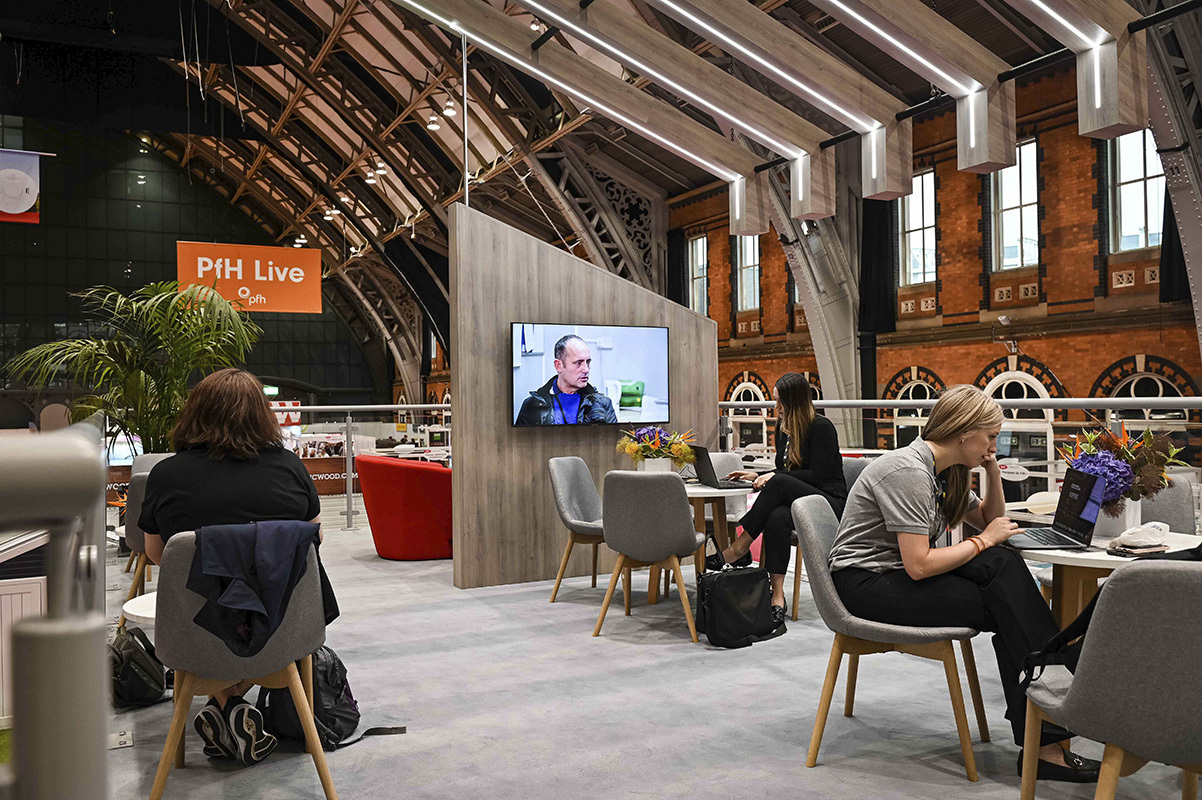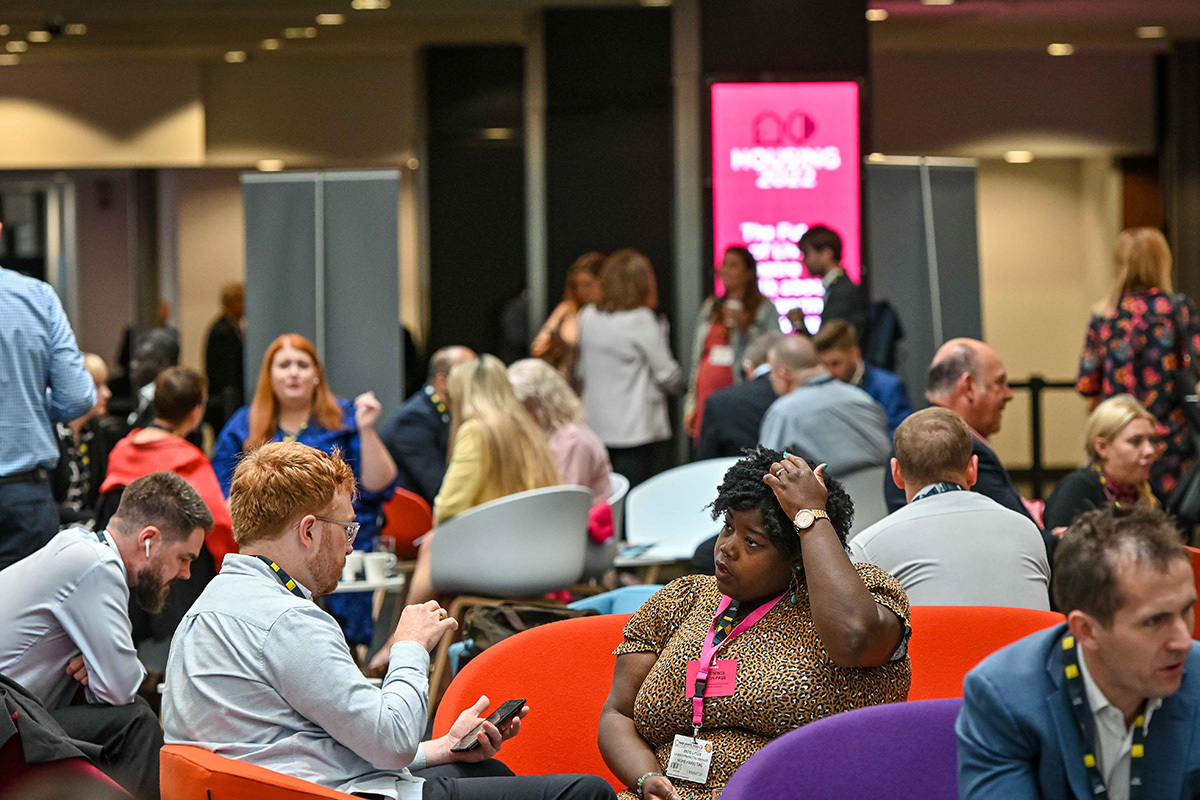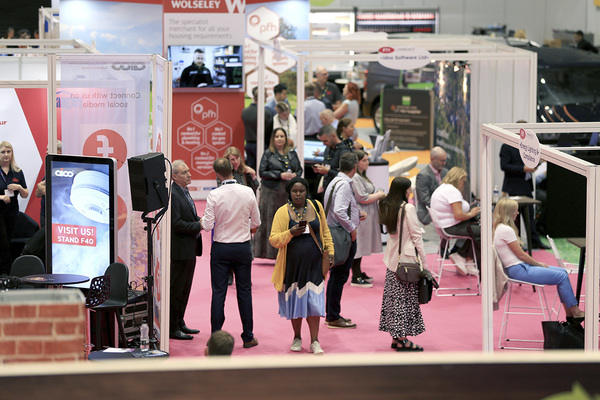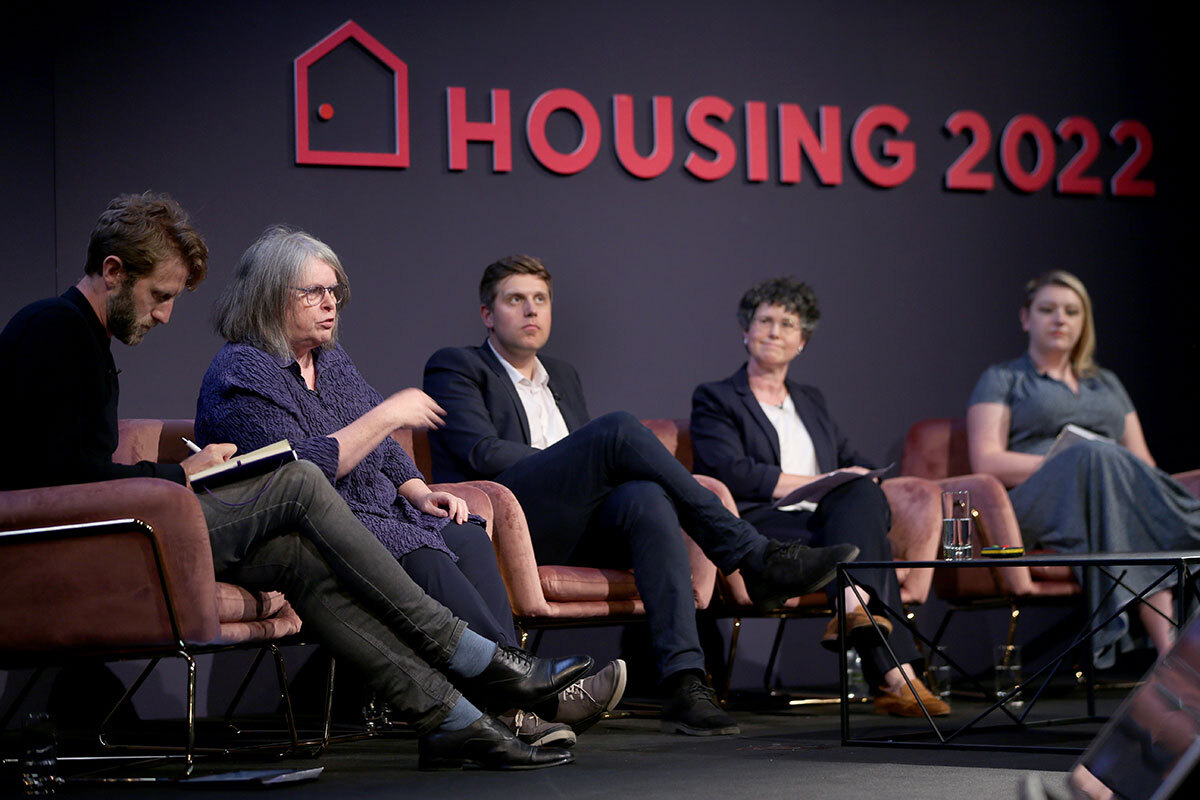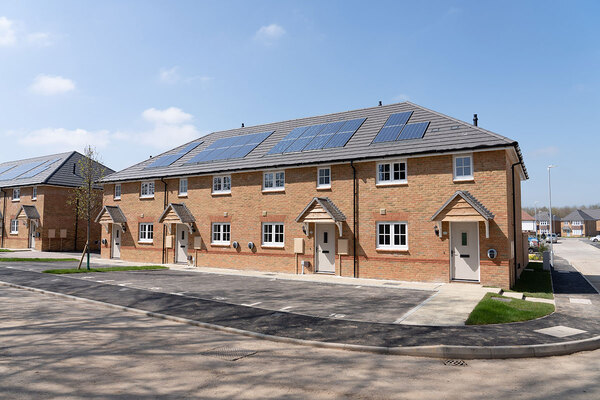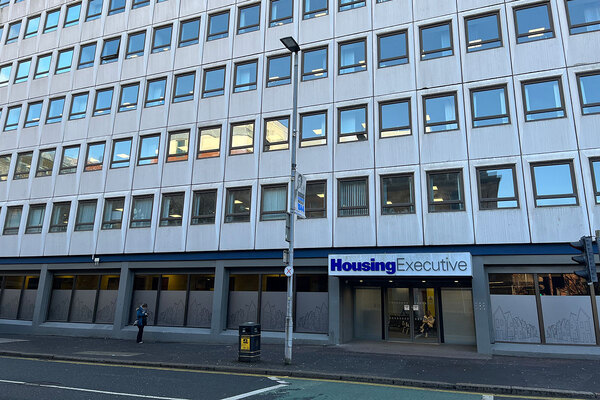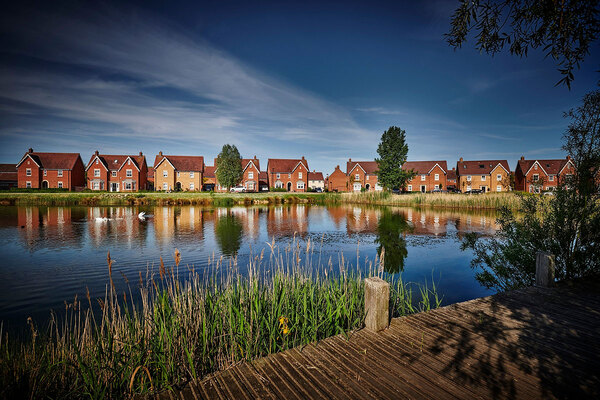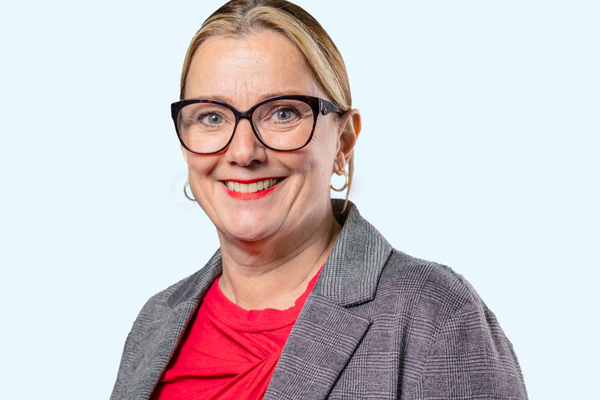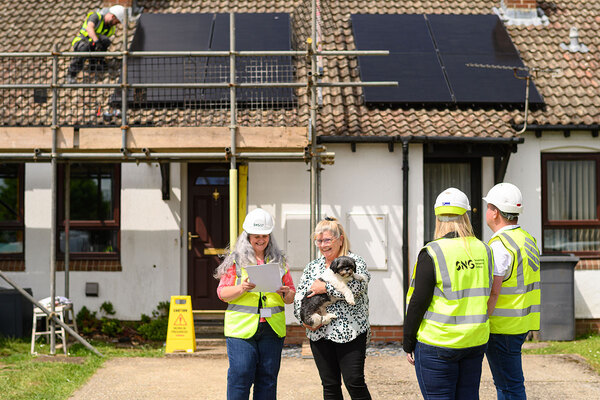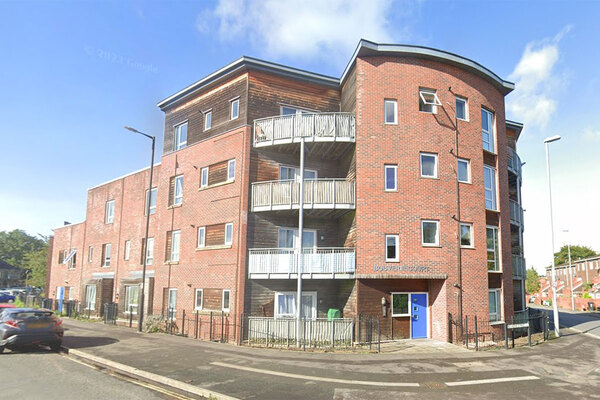You are viewing 1 of your 1 free articles
Dispatches from Housing 2022: day three
A daily round-up of the most important headlines from day three of the Housing 2022 conference. Photography by Guzelian
That’s a wrap.
After three days, countless coffees (and a few glasses of wine), Housing has wrapped up for another year.
The final day of the conference included some lively, and at points challenging, discussions for the sector, not least in the packed session with Daniel Hewitt, the ITV News journalist who exposed terrible conditions in some social housing properties.
While Mr Hewitt’s message was important for the sector to hear and must be reflected on, there is also a lot that delegates can feel proud about as they board their trains at Manchester Piccadilly and head to all corners of the country.
Other highlights include the announcement of the winner of this year’s Climate Change Hackathon and informative sessions on what more landlords can do to support domestic abuse survivors and increase lettings to homeless households.
Social landlords do many great things, but there are also areas where the sector needs to improve. This year’s conference has been a perfect demonstration of both.
Some home truths for the sector
“If we can’t house people properly, we shouldn’t be trusted to build more homes.”
This was the conclusion from Alison Inman at the end of the thought-provoking ‘An honest conversation: what needs to change and what do we need to do differently?’ session on the main Keynote Stage, which looked at the growing repairs crisis plaguing the sector.
Ms Inman said it is crucial there are shifts across the sector to focus more on the frontline of organisations.
She believes that too often the priorities of the residents, which is good repairs services and clear communication, do not align with the management teams of big landlords, which were often more focused on development pipelines and catchy taglines.
Across the stage we heard from all parts of the sector.
Housing association bosses were represented in the form of Bronwen Rapley, chief executive of Onward Homes.
She said the sector had clearly got it wrong and too many organisations have got used to the current situation, and that they need to be more upfront and honest with tenants about what they could do.
We also got a resident’s point of view from Michelle Baker, chair of the customer influence committee at Eastlight Community Homes.
She painted a picture of a lack of trust between tenants and associations. She used the example of one tenant who believed that she was a ‘fake’ tenant planted by the association to give off the mirage that they were engaging with the people they housed.
“It is quite a sad position we are in,” Ms Baker said, but added there were some greenshoots of progress coming through.
We also heard from one of the journalists who has been at the forefront of raising the issues of poor living conditions in social housing through his work for ITV News.
Daniel Hewitt’s outside perspective of what he had seen during the 18-month long investigation should be listened to by social housing bosses and workers.
In a pretty stinging assessment of what he has seen, Mr Hewitt started with the language organisations use.
He said that landlords talking about ‘customers’ was wrong and that under any definition, residents are not customers.
“They’re not using your service because they have a choice… they’re not going to leave, they’re not going to find somewhere else.
“And ironically, you don’t treat them like customers anyway, even if they [were] customers,” he said.
Mr Hewitt also painted a pretty bleak picture of the way the people in his story had been treated, explaining that he came across a lack of empathy and humanity from some organisations.
He saw situations where sometimes people had to explain their repairs issues on 10 different occasions because of a lack of note-taking and records at landlords.
Arguably the most shocking case Mr Hewitt described was one Black tenant who had to pretend he was white on the phone to get a quicker response from his landlord.
In his conclusion, Mr Hewitt said there is a number of “absolutely massive providers” that need to be more honest about their performance. Adding that he still felt the sector has a long way to go.
Don’t ski, buy homes
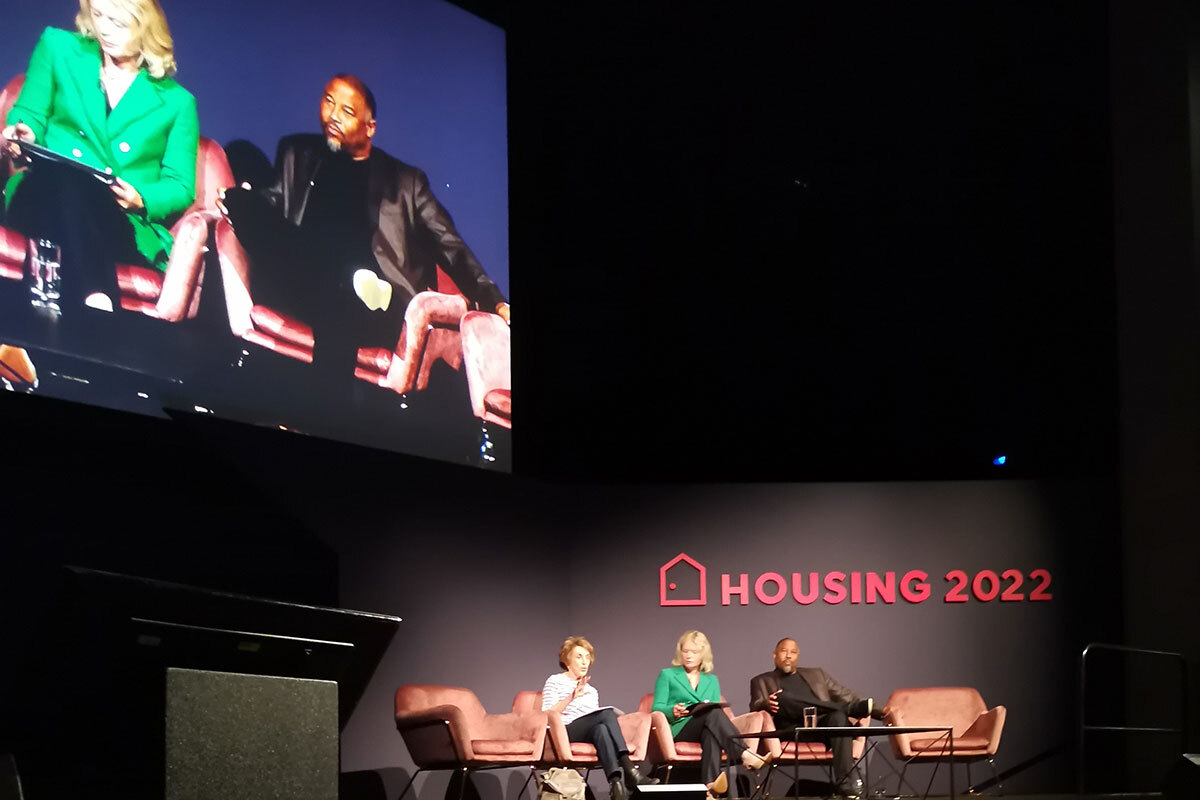
It was hard to know what to expect from today’s panel session with former England footballer John Barnes and former health secretary Edwina Currie.
One thing for sure, though, it did not disappoint.
The purported reason for the session was to talk about inequality, however the conversation ended up rearing into a wide range of topic areas.
At one point, Ms Currie, who is still involved in Conservative Party matters, explained how members were hoping for Angela Rayner to become leader of the Labour Party because it would gift the Conservatives votes.
Why does Ms Currie think this? Because she believes that some voters view Ms Rayner as a “yob”.
Mr Barnes tackled the issue of racial hypocrisy, using the example of the UK’s clamour to accept Ukrainian refugees into their homes, while not behaving with the same enthusiasm for people fleeing places such as Yemen or Chad.
It was Ms Currie’s response to a question about homeownership that got the biggest gasp from the housing audience.
When asked why she thought it was harder for people to buy a home now than when she was younger, Ms Currie responded that her generation never went on “ski holidays or to Thailand”.
She said that when she was younger nobody went on holiday, never mind two to three times a year and definitely did not stay in hotels.
When asked whether the earnings to house price ratio had anything to do with it, she said that if young professionals wanted to buy homes, they should make that their priority. She added that there was the option to move to a cheaper area.
She said: “It's much easier to buy it in Manchester than it is in London. It's much easier to buy in Chapel-en-le-Frith, where there is nearly 1,000 new homes, than it is to buy in Whaley.”
Maybe they could ski there?
Come together
The break-up of the UK may have become front-page news again this week, but that did not stop representatives from the four nations coming together to discuss how they could help each other meet their climate targets.
Key challenges raised during ‘A joined-up approach: four nations debate on housing and climate change’ session on the Unlock Net Zero Stage this morning included funding, skills shortages, supply chains, and how to get tenants on board.
Grainia Long, chief executive of the Northern Ireland Housing Executive, said the sector itself is not even on board yet.
She said one housing association boss said they did not believe that housing associations have a role to play in the transition to net zero. It is up to the government to decarbonise the grid, while the sector’s role is to build homes, according to this chief executive.
Unsurprisingly, Ms Long said that was “absolutely nonsense”, adding that the government is already decarbonising the grid and it is the sector’s job to ensure that their tenants are “safe, warm and dry” in their homes.
And this work is only coming more crucial as social housing residents across the UK face soaring energy costs.
Clarissa Corbisiero, director of policy and external affairs and deputy chief executive of Community Housing Cymru, told delegates that 45% of Welsh households are at risk of fuel poverty after the price increases.
Other panellists gave the conference an idea of the type of work that will be required to get to net zero.
Aaron Hill, director of policy and membership at the Scottish Federation of Housing Associations, said district heating networks will form a huge part of the solution in Scotland.
John Palmer, deputy director – energy performance of buildings division net zero directorate at the Department for Housing, Communities and Levelling Up, said homes of the future must have a “very efficient fabric” paired with a low or zero-carbon heat source, as well as some element of energy storage.
All four speakers said though they have different government policies, they need to work together and learn from each other.
“We all need to focus on what are those things that will help us bridge that gap between delivery and ambition. Be honest and share that across nations,” Mr Hill said.
Supporting domestic abuse survivors
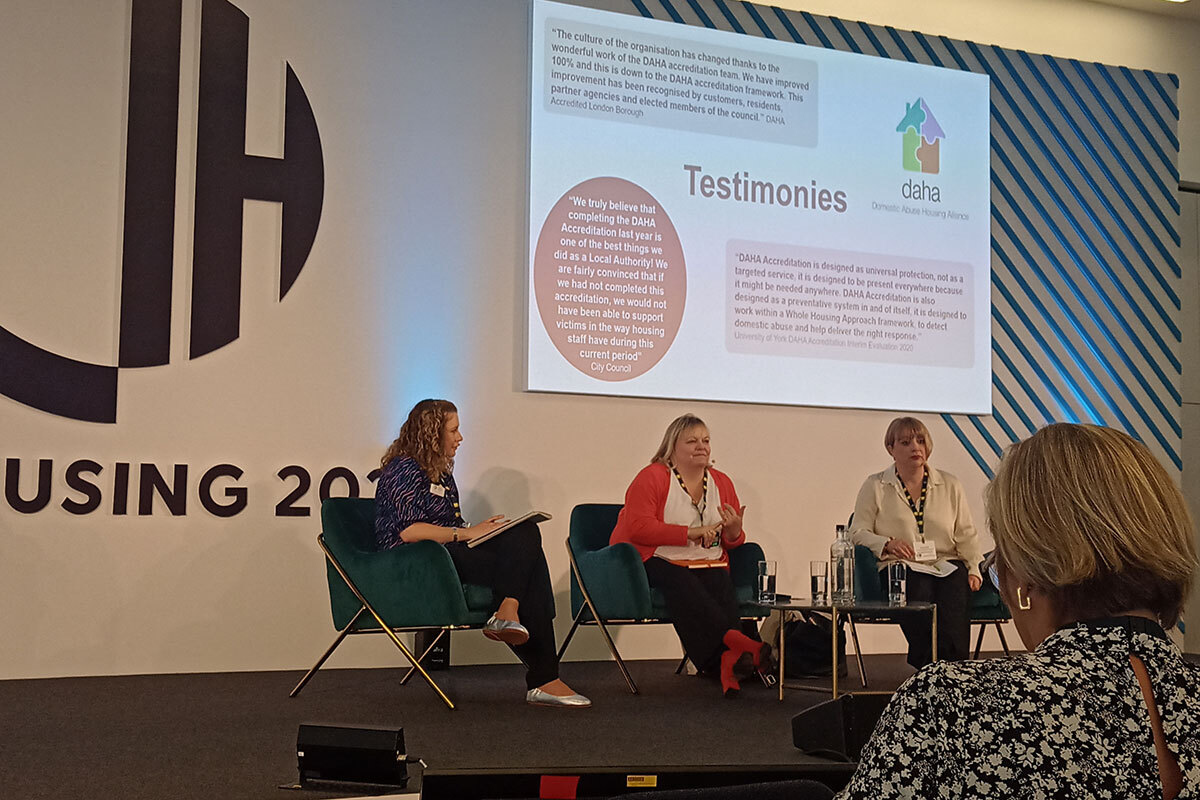
“We’ll hear that phrase so often, ‘Why doesn’t she leave?’ when we should be saying, ‘Why doesn’t he stop?” said Judith Vickress, programme manager at the Domestic Abuse Housing Alliance (DAHA).
She was speaking at the start of an enlightening session on improving the sector’s response to domestic abuse at the Masterclass and Housing Management Stage this morning.
Since the Chartered Institute of Housing launched its Make a Stand campaign in 2018, there has been a conversation in the sector about what more housing providers can do to support tenants and staff members experiencing domestic abuse.
Ms Vickress reminded the audience why it is so crucial that landlords do more and shared the shocking statistic that 85% of survivors who have left a relationship sought help from at least five organisations before they received the right support.
So, what more can landlords do to improve their response to domestic abuse?
Nicki Spear, customer enabling manager at Westward Housing, provided some practical information about what her organisation is doing as it seeks to gain accreditation as part of the scheme run by DAHA.
This includes training repairs teams on how to spot abuse and coming up with “creative” ways to get staff members into homes to speak to people who they know are experiencing abuse, for example by pretending to shadow repairs workers.
As alluded to by Ms Vickress at the start, this work is not just about supporting survivors, it is also about supporting perpetrators to change their behaviour.
It is crucial landlords consider what more they can do in this area, as the average perpetrator will have 16 victims across their adult life, Ms Vickress said.
“It’s about seeing them as humans – they are our tenants. Let’s see what we can do with them and help them engage with the right services that meet their need,” she said.
Unfortunately, finding the right services can be a challenge as Ms Vickress said there are “huge gaps” in the availability of perpetrator programmes in the UK, resulting in a “postcode lottery” for support.
Helping LGBTQ+ residents feel safe and included
An equally important conversation took place on the Fringe Stage this morning, as delegates gathered to discuss how housing associations can ensure LGBTQ+ residents feel included in their communities.
Panellists agreed that having a diverse, representative workforce is the most important way landlords can improve their relationships with LGBTQ+ tenants.
For those associations where LGBTQ+ people are underrepresented in their workforce, panellists talked about the importance of language, allyship and how to bring inclusivity into communities and developments.
While examples of good practice were highlighted, Daniel Gregson, customer engagement specialist at Onward, said he still hears “shocking” stories of association staff and subcontractors discriminating against members of the LGBTQ+ community in their own homes.
Panellists also discussed how important it is for landlords to match LGBTQ+ residents with a home in an area they feel safe and supported.
Judith McDermott, scrutiny board member at Onward, said she is lucky that she currently lives in an area where family is close by, but worries that if she was moved to a different area, she may not be accepted and become the target of abuse.
As the floor opened up to questions, one trans delegate said they felt the discussion had not focused enough on the serious barriers that trans and non-binary people face when trying to access housing as they may not be able to prove their identity.
Another delegate agreed and said it was evident that trans people and non-binary people are really underrepresented within the sector, which makes including their lived experiences much more of a challenge.
“That’s something I think we need to address when we think about allocation,” they said.
Sign up for our daily newsletter
Already have an account? Click here to manage your newsletters
Sign up to the Tenant and Resident Engagement Conference
Join us at this leading one-day event designed to help landlords and tenants achieve meaningful engagement following the Social Housing White Paper sector reforms, covering culture change, co-production and how to engage tenants on climate change, building safety, disrepair and more.
There is a free tenant place for every delegate pass booked by a landlord.
To view the agenda and book your delegate pass, click here.
